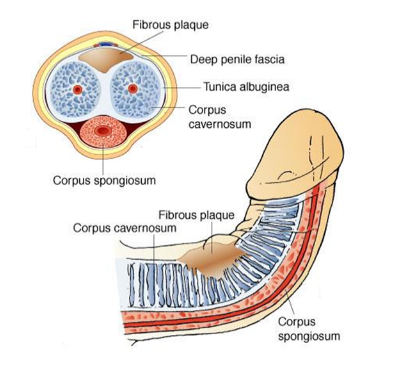Contact the coordinator
+48 75 645 2024
WhatsApp
+48 535 098 999

Contact the coordinator
+48 75 645 2024
WhatsApp
+48 535 098 999
Leave us a message
urology@kcmclinic.com
KCM Clinic provides a range of urological surgical procedures, including penile curvature surgery. In most males, a minor penile curvature is an inherent occurrence that does not have any discernible impact on reproductive capability.
Which medical professional is responsible for the treatment of penile curvature?
A medical professional specializing in diagnosing and treating disorders affecting the urinary and reproductive systems, particularly those about the penis, is referred to as a urologist.
The consultation of a urologist is recommended in the following cases:
A comprehensive evaluation by a urologist using the duplex Doppler method, medical consultation with the patient, and a thorough physical examination can identify penile curvature. Ultrasound examination uses acoustic waves to monitor the hemodynamics of the penile vasculature, providing insights into conditions such as fibrosis.
There are two primary types of penis curvature: congenital and acquired. Congenital curvature is typically observed during puberty and may not be evident at other times. On the other hand, Peyronie’s disease, a condition that causes the penile tissue to thicken and curvature during erection, is frequently associated with acquired curvature.
The etiology of Peyronie’s disease remains incompletely understood. According to several researchers, the disease may start after an injury to the penis while it is erected, such as a fall, coerced self-stimulation, or making vigorous motions during sexual contact. Penile curvature can also be attributed to minor, untreated injuries incurred during routine acts of masturbation or sexual intercourse. It is advised to exercise caution. The prevention of congenital penis curvature is not now feasible; however, it is possible to mitigate the likelihood of penile injuries that may contribute to its development. The occurrence of erectile dysfunction can be associated with advancing age. The occurrence of incomplete erectile function is correlated with an increased likelihood of penile curvature during sexual intercourse. In this case, it is advisable to consider the utilization of pharmaceutical interventions for the treatment of erectile dysfunction, as these medications facilitate enhanced blood circulation to the penis. Additionally, it is prudent to exercise caution during sexual activity and employ appropriate lubrication techniques.
Peyronie’s disease is recognized by a thickening in the erectile tissue of the penile (Fig. 1). This thickening takes the form of a fibrous plaque or a hard nodule. The condition often manifests moderately and resolves spontaneously after six to fifteen months. Therefore, it is recommended that the decision for surgical intervention for the penis be based on a comprehensive observation period of approximately two years. The onset of the disease is characterized by a localized inflammatory response, which subsequently progresses into the formation of a sclerotic plaque. In instances of heightened severity, the presence of plaque diminishes the suppleness of the penile tissue, resulting in discomfort and compelling the penis to undergo curvature during the state of erection. The upper plate of the trunk induces an upward curvature of the penis, whereas the lower plate elicits a downward curvature. In certain instances, the formation of plaque occurs both proximally and distally, resulting in the constriction and reduction in length of the penile organ, hence assuming a resemblance to a klepsydra shape.

Can penile curvature resolve on its own without intervention?
In the absence of medical experience, it is not feasible to make an informed decision on self-treatment for penile curvature. It is important to emphasize that the spontaneous disappearance of penile curvature is a rare occurrence. In instances of significant severity, the symptoms exhibit a persistent or heightened state.
Before the commencement of the procedure, the urologist will undertake a comprehensive assessment and carefully choose the most suitable approach for surgically addressing penile curvature. The anesthesiologist will make a recommendation regarding an appropriate preparation for the patient. The doctor may order additional tests.
What are the surgical methods used to treat penile curvature?
Many patients may not require surgical intervention due to the absence of pain or the lack of impact on their sexual functions caused by penile curvature. Surgical intervention may be employed as a treatment modality for severe instances of Peyronie’s disease. One of the surgical approaches for addressing penile curvature involves excising the plaque and filling the tissue. The mentioned surgery aims to correct penile curvature, but at the same time can cause erectile dysfunction. An alternative approach is to use stitches along the lateral aspect of the penis, placed opposite the plate, to mitigate the impact of penile curvature. This technique is commonly referred to as the Nesbit procedure. This particular technique is associated with a minor reduction in penile length while concurrently presenting a low likelihood of erectile dysfunction. The surgical procedure known as penile prosthesis implantation is conducted in cases where the presence of plaque obstructs the regular blood flow to the penis, hence impeding the ability to achieve an erection.
Postoperative recommendations
Posoperative recommendations refer to the guidelines and instructions provided to patients following a surgical procedure to optimize their recovery and minimize potential complications. Typically, the patient is discharged on the same day that the surgery is performed. The patient is given painkillers and instructed to use cold compresses. It is recommended that individuals practice sexual abstinence for a minimum duration of eight weeks. The possibility of returning to work arises when the patient no longer experiences any discomfort.
Dr. Alam Bouhaouli at KCM Clinic performs surgical interventions for the correction of physiological penile curvature.
Literature:
Netography:
Send Request
Register
Visits, hospital procedures
Bariatric Surgery Center
Plastic Surgery Center
Spine Surgery Center
Dental Clinic
OMEGA Imaging Diagnostic Center
Work hours
KCM Clinic Wrocław
Chat KCM Clinic
Locations
KCM Clinic Jelenia Góra
KCM Clinic Wrocław
Parking